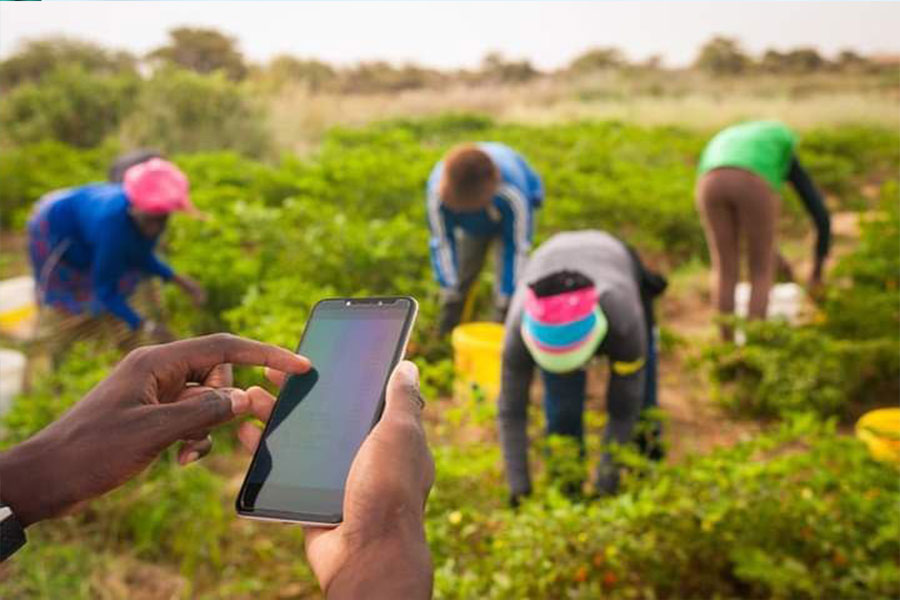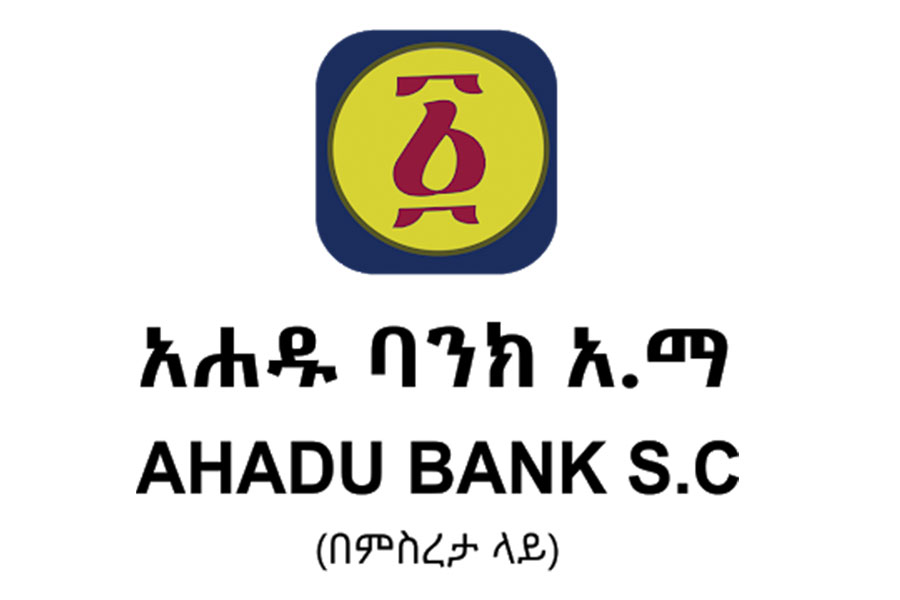
Viewpoints | Nov 19,2022
On weekday evenings and weekends, people of all age groups can been seen relaxing in cafes across the capital reading print newspapers and magazines.
This has been a common sight for many years, especially in neighborhoods like Arat Kilo, Piassa and National Theatre that are known to be flooded by newspaper vendors.
But it is a fact that the number of people flowing to the areas for reading has significantly dwindled since news consumers began to spend most of their time perusing news from the comfort of their phones and computers.
News applications and websites have become the most popular conduits for news, unlike the previous days when newspapers, television and radio were the only options.
There are 31 licensed satellite television stations, 28 radio stations and 25 print media publications, according to the Ethiopian Broadcast Authority, the government authority responsible for licensing broadcast and publication media that is distributed outside a single regional state.
Lately, the usage of social and digital media is significantly expanding. The rate has almost doubled in the past two decades, according to data from internetworldstats.com.
Currently, about 18.6pc of the 100 million-plus population of Ethiopia are daily internet users, according to the same report released in June 2019. The figure includes individuals who access the internet through all devices.
One of the niche products that has begun to have a larger audience among local internet users recently is digital magazines. Digital magazines, like normal magazines in that they are organised the same with chronological numbering, use different social media platforms and their own websites to disseminate their finished product.
Tadias, a New York-based magazine founded by Liben Eabisa and Tsedey Alehegn, was the first local digital magazine on the scene when it was founded in 2003.
Even though the number of these magazines has significantly grown after Tadias, the exact number of magazines is not specifically known, since they are not required to be registered by anyone.
Birhanu Tegegen, director of the Trade Registration & Licensing Office at the Ministry of Trade & Industry, confirmed to Fortunethat there is no category for registering online magazines.
News applications and websites have become the most popular conduits for news, unlike the previous days when newspapers, television and radio were the only options.
These magazines usually cover issues like news, events, creative arts and entertainment. Interested readers can use the magazines after subscribing to the publications online.
Linkup Addis, a monthly event-based online magazine that was established in July of 2018, is one of them. The magazine was co-founded by Eyob Workneh, a 28-year-old managing director and editor-in-chief at the magazine, Eyasu Abdela, the marketing director, and Benny Yosef, the creative director.
Before coming up with the idea of establishing the online magazine, the founders worked as event organisers for a year. They started the magazine to reach out to more of their target audiences with a goal of creating a social impact using digital media.
Any timely event is qualified to be covered in Linkup Addis. In addition to covering events, the magazine also works as a media partner for events, conferences, workshops and training organisers.
The 17th edition of the publication was released in December 2019, with the face of Solomon Kassa, an Ethiopian tech influencer and author on its front page. The latest edition published this month featured Heddo Siebs, general manager of Hyatt Regency Hotel, one of the franchised hotels operating in the capital, on the cover page.
Linkup Addis, whose owners claim to have 40,000 readers, is available for free.
“Though we gain our profit from advertisements," said Eyob, "we're informing our readers through the content we provide through the magazine."
Jeti Gemeda, a 28-year-old operations manager at Yisakal Entertainment, is one of the 40,000 subscribers to Linkup Addis. Since its free, subscribing in this case means receiving regular emails that announce new issues.
Jeti says that Linkup Addishas introduced her to a lot of inspiring people.
“The magazine features people who haven’t been covered by other media outlets but who are game changers in the society,” Jeti told Fortune.
Another reader, Biniam Wolde-Hana, a 34-year-old teacher at International Community School, says that the virtual magazine is easily accessible compared with print competitors.
“I can only find the print media from street sellers, but Linkup Addiswas available immediately through my e-mail after I subscribed to it,” Biniam told Fortune.
Not only text-based magazines are being published digitally these days. Googoot, a virtual magazine based on visual content, is one of them that publishes photography.
Founded by two young and passionate photographers, Googoot aims at encouraging and exhibiting artists who are in the photography industry. The magazine just launched on September 13, 2019. Since then they have produced a total of five issues.
Googootfocuses more on the product than the people who took the photographs. One of the aims of the magazine is to connect people with their memories; they can refer to Googootwhenever they feel like it and find photos they can relate to.
“We're trying to promote the artistic narrative over and above the photographers,” said one of the founders who commented under the condition of anonymity.
The magazine is published on the 13th day of every month and now has subscribers across Africa. Googoothas plans to feature unique photographs found on the continent, according to the founders.
Apart from their website, people can access the magazine using the Telegram application. The founders also claim that at least ten people download their magazine from the website every day.
“That's good progress in five months,” he said.
Googoothas not started making any profit yet.
“People approach us to advertise their products in the magazine, but we want to make sure first that our goal is truly understood by the people who take the photographs,” said the founder.
Though most of the existing publications have not begun paying off monetarily for the founders, more new digital magazines are already joining the business. GETZis another online magazine that was established in October 2019.
Ezra Million, Izzat Amannuel, Natnael Tesfaye and Besufikade Mulu, all and young professional designers in different fields, founded the magazine, which focuses on issues related to the creative design industry.
Designs associated with architecture, fashion and contemporary art are the three areas covered by GETZ. The magazine interviews people in the sector and features them on editions that come out every month. GETZis available through its website and social media.
Though the founders have not begun subscriptions for email users yet, GETZis available on Telegram and has managed to register 16,000 subscribers on the application in three months, according to Ezra Million, one of the creators of the magazine.
“The magazine hasn’t made a profit from the past editions," said Ezra. "We're waiting until people using digital media know it well."
Mingezem Misganaw, founder of the Hulumale e-commerce platform and a lecturer at the University of Gonder in the Department of Information Technology, says that the digital era has helped these magazines to flourish.
Social media is diverting people’s attention from buying print media nowadays, and founders of online magazines are using this to their advantage, according to Mingezem.
“In terms of accessibility, the print media is not available everywhere," he said. "Readers would rather subscribe to online magazines and get any information easilyfrom wherever they are, based on their interest and their profession."
Encouraged with the feedback and response from the market, Eyob and his friends are planning to expand Linkup Addis'coverage.
“We have a plan to diversify our content into other areas beyond covering events,” said Eyob.
PUBLISHED ON
Feb 01,2020 [ VOL
20 , NO
1031]

Viewpoints | Nov 19,2022

Advertorials | Aug 05,2025

View From Arada | Jul 10,2021

Fortune News | Sep 14,2024

Sponsored Contents | Jan 31,2022

Viewpoints | Oct 07,2023

Verbatim | Jan 18,2020

Fortune News | Apr 09,2022

Fortune News | Jul 11,2021

Sponsored Contents | Aug 16,2021

Dec 22 , 2024 . By TIZITA SHEWAFERAW
Charged with transforming colossal state-owned enterprises into modern and competitiv...

Aug 18 , 2024 . By AKSAH ITALO
Although predictable Yonas Zerihun's job in the ride-hailing service is not immune to...

Jul 28 , 2024 . By TIZITA SHEWAFERAW
Unhabitual, perhaps too many, Samuel Gebreyohannes, 38, used to occasionally enjoy a couple of beers at breakfast. However, he recently swit...

Jul 13 , 2024 . By AKSAH ITALO
Investors who rely on tractors, trucks, and field vehicles for commuting, transporting commodities, and f...

Oct 11 , 2025
Ladislas Farago, a roving Associated Press (AP) correspondent, arrived in Ethiopia in...

Oct 4 , 2025
Eyob Tekalegn (PhD) had been in the Governor's chair for only weeks when, on Septembe...

Sep 27 , 2025
Four years into an experiment with “shock therapy” in education, the national moo...

Sep 20 , 2025
Getachew Reda's return to the national stage was always going to stir attention. Once...